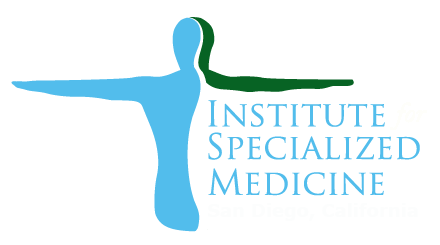SESSION ONE: BASIC CLINICAL IMMUNOLOGY
Review the current knowledge regarding the functional organization of the immune system, and mechanisms of cellular and humoral immune responses in norm and pathology (autoimmune disease, chronic infections etc.). In addition, we will focus on cooperation between immune responses and key metabolic pathways. We will discuss laboratory techniques/tests available for analysis of immune system and will review specific aspects of the laboratory test results interpretation. Finally, we will examine basic principles of pharmaceutical and neutraceutical regulation of immune system in humans.
DAY 1
- INTRODUCTION INTO AUTOIMMUNITY AND THE IMMUNE SYSTEM
- NATURE OF ANTIGENS AND THE MAJOR HISTOCOMPATIBILITY COMPLEX (MHC)
- INNATE IMMUNITY
- ADAPTIVE IMMUNITY
- ANTIBODY STRUCTURE AND FUNCTION
- CYTOKINES
- COMPLEMENT SYSTEM
DAY 2
- IMMUNOMETABOLISM: METABOLIC PATHWAYS AND IMMUNE RESPONSES
- LABORATORY ASSESSMENT OF IMMUNE FUNCTION
- PRACTICAL INTERPRETATION OF LABORATORY DATA
- PHARMACEUTICAL REGULATION OF IMMUNE RESPONSES
- NEUTRACEUTICAL REGULATION OF IMMUNE RESPONSES
- CASE PRESENTATIONS
SESSION TWO: INTRODUCTION TO AUTOIMMUNE DISEASES
Review the current knowledge regarding the origin and progression of human autoimmune diseases. In addition, we will discuss traditional and integrative approaches to classification of various autoimmune diseases, the nature of autoinflammatory diseases, as well as genetic and epigenetic factors facilitating autoimmune responses. Finally, we will examine basic principles of traditional and integrative therapy of autoimmune diseases, and discuss several cases from clinical practice.
DAY 1
- AUTOIMMUNE DISEASES AS DISEASES OF DISTURBED HOMEOSTASIS
- GENERAL FEATURES OF AUTOIMMUNE DISEASES
- CLASSIFICATION OF AUTOIMMUNE DISEASES
- THE CONCEPT OF AUTOINFLAMMATORY DISEASES
- INITIATION OF AUTOIMMUNITY
- FACILITATION OF AUTOIMMUNITY
DAY 2
- GENETICS OF AUTOIMMUNE DISEASES
- EPIGENETICS OF AUTOIMMUNE DISEASES
- ENVIRONMENTAL FACTORS AND AUTOIMMUNE DISEASES
- LABORATORY ASSESSMENT OF AUTOIMMUNE DISEASES
- GENERAL PRINCIPLES OF INTEGRATIVE THERAPY OF AUTOIMMUNE DISEASES
- CASE PRESENTATIONS
SESSION THREE: INFECTION AND AUTOIMMUNE DISEASES
Review the current knowledge regarding biologic mechanisms mediating development of chronic microbial, fungal and viral human infections as well as mechanisms leading to the development of the infection-driven autoimmune disease. In addition, we will focus on several specific infections frequently driven by autoimmune diseases. We will discuss principles of laboratory diagnosis of chronic infections and infection-driven autoimmune diseases and practical interpretation of test results. Finally, we will examine basic principles of pharmaceutical and neutraceutical therapy of chronic infections and infection-driven autoimmune disease in humans.
DAY 1
- BASIC BIOLOGY OF CHRONIC/PERSISTENT INFECTIONS
- MECHANISMS LINKING CHRONIC INFECTIONS AND AUTOIMMUNITY
- STREPTOCOCCAL INFECTION, RHEUMATIC FEVER, PANDA ETC
- MYCOPLASMOSIS
- CHLAMYDIOSIS
- ATYPICAL MYCOBACTERIAL INFECTIONS
- YERSINIA ENTEROCOLITICA AND YERSINIA PSEUDOTUBERCULOSIS
DAY 2
- CHRONIC BORRELIOSIS (LYME DISEASE) AND TICK BORNE ILLNESSES
- CHRONIC BARTONELLOSIS
- CHRONIC TOXOPLASMOSIS
- CHRONIC FUNGAL INFECTIONS
- COXSACKIE AND ECHO VIRUS INFECTIONS
- CHRONIC EPSTEIN-BARR INFECTION
- PRINCIPLES OF CLINICAL AND LABORATORY DIAGNOSIS
- PRINCIPLES OF INTEGRATIVE THERAPY
SESSION FOUR: MULTISYSTEM AUTOIMMUNE DISEASES
Review the current knowledge regarding biologic mechanisms mediating development of systemic autoimmune diseases, including systemic lupus erythematosus, scleroderma, Sjogren’s syndrome, vasculitidis, inflammatory myopathies, etc. In addition, we will focus on the most common triggers frequently driven by specific autoimmune diseases. We will discuss principles of laboratory diagnosis of autoimmune diseases and practical interpretation of the test results. Finally, we will examine basic principles of pharmaceutical and neutraceutical therapy of major autoimmune disease in humans.
DAY 1
- SYSTEMIC LUPUS ERYTHEMATOSUS
- SJOGREN’S SYNDROME
- ANTIPHOSPHOLIPID ANTIBODY SYNDROME
- VASCULITIDIES
- AUTOIMMUNE MYOPATHIES
DAY 2
- RHEUMATOID ARTHRITIS
- SPONDYLOARTHROPATHIES
- SCLERODERMA
- PRINCIPLES OF CLINICAL AND LABORATORY DIAGNOSIS
- PRINCIPLES OF INTEGRATIVE THERAPY
SESSION FIVE: AUTOIMMUNE DISEASES AND THE GASTROINTESTINAL SYSTEM
Review the current knowledge regarding the functional organization of mucosal immune system and gastrointestinal barrier function. We will also review the role of gastrointestinal microbiome and food composition in the regulation of human immune and autoimmune responses. In addition, we will focus on specific autoimmune diseases affecting different compartments of the gastrointestinal tract. We will discuss principles of laboratory diagnosis of gastrointestinal autoimmune diseases and practical interpretation of the test results. Finally, we will examine basic principles of pharmaceutical and neutraceutical therapy of autoimmune diseases affecting human gastrointestinal tract.
DAY 1
- BASICS OF MUCOSAL IMMUNE RESPONSES
- THE BARRIER FUNCTION OF THE GASTROINTESTINAL TRACT
- MICROBIOME AND AUTOIMMUNITY
- FOOD AND AUTOIMMUNITY
- INFLAMMATORY BOWEL DISEASE
DAY 2
- AUTOIMMUNE DISEASES OF LIVER AND BILIARY TREE
- AUTOIMMUNE INTESTINAL DYSMOTILITY
- CHRONIC GASTROINTESTINAL INFECTIONS AND AUTOIMMUNITY
- PRINCIPLES OF CLINICAL AND LABORATORY DIAGNOSIS
- PRINCIPLES OF INTEGRATIVE THERAPY
- PREBIOTICS, PROBIOTICS AND SYMBIOTICS
- FOOD INTOLERANCE AND PRINCIPLES OF FOOD ELIMINATION THERAPY
SESSION SIX: DEALING WITH MONSTERS
Review the current knowledge regarding autoimmune processes and common triggers mediating a large group of generally neglected and poorly treatable conditions such as fibromyalgia, chronic fatigue syndrome, hypermobility disorders, mast cell activation syndrome and Postural Orthostatic Tachycardia Syndrome (POTS). We will discuss principles of laboratory diagnosis of these conditions, practical interpretation of the test results as well as principles of their pharmaceutical and neutraceutical therapy.
DAY 1
- CHRONIC FATIGUE SYNDROME
- FIBROMYALGIA
- HYPERMOBILITY SYNDROME, EHLERS-DANLOS SYNDROME, SACROILIAC INSTABILITY
DAY 2
- MAST CELL ACTIVATION SYNDROME
- POSTURAL ORTHOSTATIC TACHYCARDIA SYNDROME (POTS)
- PRINCIPLES OF CLINICAL AND LABORATORY DIAGNOSIS
- PRINCIPLES OF INTEGRATIVE THERAPY
